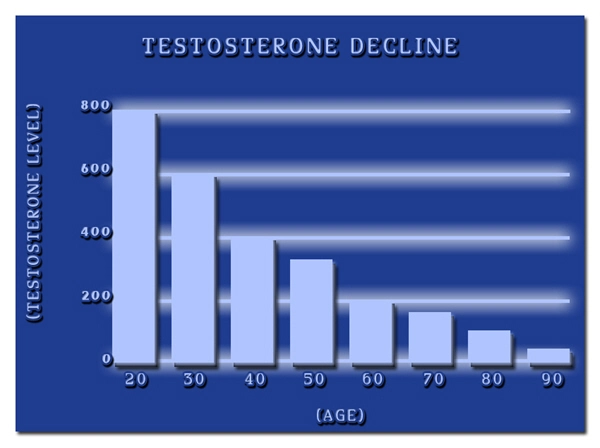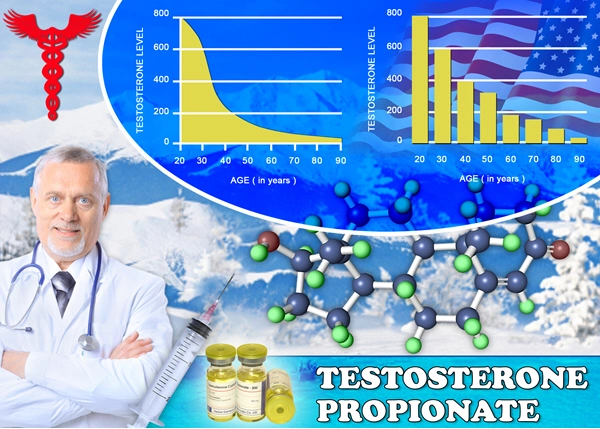Introduction to Low Testosterone
Low testosterone, or hypogonadism, is a condition increasingly recognized among American men, characterized by a deficiency in the hormone testosterone. This hormone plays a crucial role in male development and health, influencing muscle mass, bone density, and sexual function. As men age, testosterone levels naturally decline, but when levels drop below normal ranges, it can lead to various health issues, including potential impacts on vascular health.
Understanding Vascular Disorders
Vascular disorders encompass a range of conditions affecting the circulatory system, including atherosclerosis, peripheral artery disease, and coronary artery disease. These disorders can lead to serious health complications such as heart attacks and strokes. The relationship between hormonal imbalances and vascular health has been a topic of growing interest within the medical community, particularly the role of testosterone.
The Connection Between Low Testosterone and Vascular Health
Recent studies have begun to explore the link between low testosterone levels and an increased risk of vascular disorders. Research indicates that testosterone may have a protective effect on the vascular system. It is believed to contribute to the maintenance of vascular tone and endothelial function, which are critical for healthy blood flow and preventing the buildup of plaque in the arteries.
A study published in the *Journal of Clinical Endocrinology & Metabolism* found that men with lower testosterone levels were more likely to have increased carotid intima-media thickness, a marker of atherosclerosis. Another research highlighted in the *American Journal of Cardiology* suggested that testosterone therapy could improve vascular reactivity, thereby potentially reducing the risk of cardiovascular events.
Impact on American Men
In the United States, where lifestyle factors such as diet, exercise, and stress can influence testosterone levels, the prevalence of low testosterone is a significant concern. According to the American Urological Association, approximately 2.4 million men in the U.S. have low testosterone, with many more potentially undiagnosed. Given the potential link to vascular health, this represents a public health issue that warrants attention and action.
Symptoms and Diagnosis
Men experiencing low testosterone may notice symptoms such as decreased libido, erectile dysfunction, fatigue, and mood changes. Diagnosis typically involves a blood test to measure testosterone levels, often performed in the morning when levels are highest. If levels are found to be consistently low, further evaluation may be necessary to determine the underlying cause and appropriate treatment.
Treatment and Management
Treatment for low testosterone may include testosterone replacement therapy (TRT), which can be administered through injections, gels, patches, or implants. While TRT can help alleviate symptoms and potentially improve vascular health, it is not suitable for everyone. Men considering TRT should consult with a healthcare provider to discuss the benefits and risks, as well as alternative treatments such as lifestyle modifications, which can also positively impact testosterone levels and overall health.
Preventive Measures and Lifestyle Changes
Preventive measures and lifestyle changes play a crucial role in managing low testosterone and reducing the risk of vascular disorders. Regular exercise, a balanced diet rich in nutrients, adequate sleep, and stress management are all essential. Additionally, avoiding smoking and limiting alcohol consumption can help maintain healthy testosterone levels and support vascular health.
Conclusion
The connection between low testosterone and vascular disorders in American men is an area of ongoing research, but the evidence suggests a significant link. As awareness grows, it is important for men to monitor their testosterone levels and take proactive steps to maintain their vascular health. By understanding the risks and implementing preventive measures, American men can work towards a healthier future.

- Environmental Toxins Linked to Declining Testosterone Levels in American Men [Last Updated On: March 4th, 2025] [Originally Added On: March 4th, 2025]
- Economic Burden of Low Testosterone on American Healthcare System [Last Updated On: March 17th, 2025] [Originally Added On: March 17th, 2025]
- Vitamin D's Role in Managing Low Testosterone in American Men: Insights and Strategies [Last Updated On: March 17th, 2025] [Originally Added On: March 17th, 2025]
- Low Testosterone in American Males: Symptoms, Causes, and Management Strategies [Last Updated On: March 18th, 2025] [Originally Added On: March 18th, 2025]
- Low Testosterone and Mood Disorders in American Men: Causes, Symptoms, and Treatments [Last Updated On: March 18th, 2025] [Originally Added On: March 18th, 2025]
- Chronic Illnesses and Their Impact on Testosterone Levels in American Males [Last Updated On: March 18th, 2025] [Originally Added On: March 18th, 2025]
- Low Testosterone's Impact on Muscle Health in American Males: Causes, Effects, and Treatments [Last Updated On: March 19th, 2025] [Originally Added On: March 19th, 2025]
- Low Testosterone in American Men: Symptoms, Diagnosis, and Treatment Options [Last Updated On: March 19th, 2025] [Originally Added On: March 19th, 2025]
- Alcohol Consumption's Impact on Testosterone Levels in American Men [Last Updated On: March 20th, 2025] [Originally Added On: March 20th, 2025]
- Low Testosterone and Diabetes in American Males: Impacts and Management Strategies [Last Updated On: March 20th, 2025] [Originally Added On: March 20th, 2025]
- Low Testosterone in Aging Men: Symptoms, Impacts, and Management Strategies [Last Updated On: March 21st, 2025] [Originally Added On: March 21st, 2025]
- Low Testosterone's Impact on Cognitive Function in American Men: Memory, Attention, and Executive Skills [Last Updated On: March 21st, 2025] [Originally Added On: March 21st, 2025]
- Smoking's Impact on Testosterone: A Critical Health Concern for American Men [Last Updated On: March 21st, 2025] [Originally Added On: March 21st, 2025]
- Low Testosterone's Impact on Skin Health in American Men: Causes and Management [Last Updated On: March 21st, 2025] [Originally Added On: March 21st, 2025]
- Shift Work's Impact on Testosterone Levels in American Men: Risks and Mitigation Strategies [Last Updated On: March 22nd, 2025] [Originally Added On: March 22nd, 2025]
- Zinc's Role in Boosting Testosterone Levels in American Men: A Comprehensive Overview [Last Updated On: March 23rd, 2025] [Originally Added On: March 23rd, 2025]
- Low Testosterone and Depression in American Males: Links, Implications, and Therapy [Last Updated On: March 23rd, 2025] [Originally Added On: March 23rd, 2025]
- Low Testosterone and Hair Loss: Impact and Management in American Males [Last Updated On: March 23rd, 2025] [Originally Added On: March 23rd, 2025]
- Boosting Testosterone in American Men Through Tailored Physical Activity [Last Updated On: March 23rd, 2025] [Originally Added On: March 23rd, 2025]
- Medications Impacting Testosterone Levels: Insights for American Men's Hormonal Health [Last Updated On: March 23rd, 2025] [Originally Added On: March 23rd, 2025]
- Weight Loss: A Key Strategy for Boosting Testosterone in American Males [Last Updated On: March 23rd, 2025] [Originally Added On: March 23rd, 2025]
- Herbal Supplements: A Natural Approach to Treating Low Testosterone in American Men [Last Updated On: March 23rd, 2025] [Originally Added On: March 23rd, 2025]
- Low Testosterone Linked to Osteoporosis Risk in American Men: Prevention and Treatment Insights [Last Updated On: March 24th, 2025] [Originally Added On: March 24th, 2025]
- Low Testosterone in American Males: Impact on Libido and Treatment Options [Last Updated On: March 24th, 2025] [Originally Added On: March 24th, 2025]
- Dietary Strategies to Boost Testosterone in American Men: Key Nutrients and Foods [Last Updated On: March 24th, 2025] [Originally Added On: March 24th, 2025]
- Genetic Factors in Low Testosterone Among American Males: Research and Implications [Last Updated On: March 24th, 2025] [Originally Added On: March 24th, 2025]
- Nutritional Deficiencies and Testosterone: Insights for American Males [Last Updated On: March 24th, 2025] [Originally Added On: March 24th, 2025]
- Low Testosterone and Prostate Health: Understanding Risks and Management Strategies [Last Updated On: March 24th, 2025] [Originally Added On: March 24th, 2025]
- Environmental Estrogens: Impact on Testosterone Levels in American Males [Last Updated On: March 25th, 2025] [Originally Added On: March 25th, 2025]
- Low Testosterone and Metabolic Syndrome: Impacts and Interventions in American Men [Last Updated On: March 25th, 2025] [Originally Added On: March 25th, 2025]
- Low Testosterone: Symptoms, Diagnosis, and Impact on Men's Quality of Life [Last Updated On: March 25th, 2025] [Originally Added On: March 25th, 2025]
- Low Testosterone: Impacts and Strategies for Managing Body Composition in American Males [Last Updated On: March 25th, 2025] [Originally Added On: March 25th, 2025]
- Low Testosterone and Anemia: Exploring the Link and Treatment in American Men [Last Updated On: March 25th, 2025] [Originally Added On: March 25th, 2025]
- Low Testosterone's Impact on Emotional Health in American Men: Insights and Solutions [Last Updated On: March 25th, 2025] [Originally Added On: March 25th, 2025]
- Chronic Inflammation's Impact on Testosterone Levels in American Males [Last Updated On: March 26th, 2025] [Originally Added On: March 26th, 2025]
- Chronic Stress Impact on Testosterone Levels in American Men: Management Strategies [Last Updated On: March 26th, 2025] [Originally Added On: March 26th, 2025]
- Low Testosterone's Impact on Immune Function in American Males: Insights and Interventions [Last Updated On: March 26th, 2025] [Originally Added On: March 26th, 2025]
- Low Testosterone and Thyroid Disorders: Exploring the Link in American Men [Last Updated On: March 26th, 2025] [Originally Added On: March 26th, 2025]
- Liver Health's Crucial Role in Managing Testosterone Levels in American Males [Last Updated On: March 27th, 2025] [Originally Added On: March 27th, 2025]
- Low Testosterone Linked to Insulin Resistance in American Men: Impacts and Strategies [Last Updated On: March 27th, 2025] [Originally Added On: March 27th, 2025]
- Low Testosterone Linked to Increased Heart Disease Risk in American Men [Last Updated On: March 27th, 2025] [Originally Added On: March 27th, 2025]
- Low Testosterone and Skin Health: Impacts and Management in American Men [Last Updated On: March 27th, 2025] [Originally Added On: March 27th, 2025]
- Hormonal Imbalance and Low Testosterone in American Males: Causes, Symptoms, and Treatments [Last Updated On: March 27th, 2025] [Originally Added On: March 27th, 2025]
- Sleep Apnea's Impact on Testosterone Levels in American Males: Causes and Solutions [Last Updated On: March 27th, 2025] [Originally Added On: March 27th, 2025]
- Chronic Pain's Impact on Testosterone Levels in American Males: A Comprehensive Analysis [Last Updated On: March 28th, 2025] [Originally Added On: March 28th, 2025]
- Managing Low Testosterone in Aging Men: Symptoms, Diagnosis, and Treatment Options [Last Updated On: March 28th, 2025] [Originally Added On: March 28th, 2025]
- Dental Health Impacts Testosterone Levels in American Males: Insights and Recommendations [Last Updated On: March 28th, 2025] [Originally Added On: March 28th, 2025]
- Low Testosterone Linked to Higher Autoimmune Disease Risk in American Men [Last Updated On: March 28th, 2025] [Originally Added On: March 28th, 2025]
- Low Testosterone Linked to Neurological Risks in American Men: Implications and Interventions [Last Updated On: March 28th, 2025] [Originally Added On: March 28th, 2025]
- Respiratory Health's Impact on Testosterone Levels in American Males: COPD and Asthma Effects [Last Updated On: March 29th, 2025] [Originally Added On: March 29th, 2025]
- Low Testosterone Linked to Increased Kidney Disease Risk in American Men [Last Updated On: March 30th, 2025] [Originally Added On: March 30th, 2025]
- Gut Health and Testosterone: A Vital Connection for American Men's Wellness [Last Updated On: March 30th, 2025] [Originally Added On: March 30th, 2025]
- Low Testosterone's Impact on Musculoskeletal Health in American Men: Risks and Interventions [Last Updated On: April 1st, 2025] [Originally Added On: April 1st, 2025]
- ENT Health's Crucial Role in Optimizing Testosterone Levels in American Males [Last Updated On: April 1st, 2025] [Originally Added On: April 1st, 2025]
- Low Testosterone Linked to Increased Eye Disorder Risk in American Men [Last Updated On: April 2nd, 2025] [Originally Added On: April 2nd, 2025]
- Reproductive Health's Impact on Testosterone Levels in American Men [Last Updated On: April 4th, 2025] [Originally Added On: April 4th, 2025]
- Low Testosterone and Hematological Risks in American Men: Insights and Management [Last Updated On: April 7th, 2025] [Originally Added On: April 7th, 2025]
- Understanding Low Testosterone: Causes, Diagnosis, and Management Strategies [Last Updated On: April 7th, 2025] [Originally Added On: April 7th, 2025]
- Low Testosterone's Impact on Urological Health in American Men: Risks and Management [Last Updated On: April 7th, 2025] [Originally Added On: April 7th, 2025]
- Low Testosterone Levels Linked to Higher Infection Risk in American Men [Last Updated On: April 8th, 2025] [Originally Added On: April 8th, 2025]
- Low Testosterone Linked to Psychiatric Disorders in American Men: Implications and Management [Last Updated On: April 9th, 2025] [Originally Added On: April 9th, 2025]
- Immune System's Role in Low Testosterone Among American Males: A Holistic View [Last Updated On: April 10th, 2025] [Originally Added On: April 10th, 2025]
- Managing Rheumatological Health to Address Low Testosterone in American Males [Last Updated On: April 10th, 2025] [Originally Added On: April 10th, 2025]
- Cancer's Impact on Testosterone Levels in American Men: Causes, Effects, and Management [Last Updated On: April 10th, 2025] [Originally Added On: April 10th, 2025]
- Testosterone Levels and Wound Healing in American Males: Impacts and Implications [Last Updated On: April 12th, 2025] [Originally Added On: April 12th, 2025]
- Trauma's Impact on Testosterone Levels in American Males: Physiological and Psychological Insights [Last Updated On: April 13th, 2025] [Originally Added On: April 13th, 2025]
- Low Testosterone's Impact on Surgical Outcomes in American Men: Risks and Recommendations [Last Updated On: April 13th, 2025] [Originally Added On: April 13th, 2025]



List of USA state clinics - click a flag below for blood testing clinics.
Word Count: 580



















































